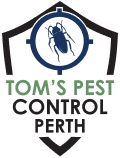Mouse Spiders
About the Mouse Spiders
Mouse spiders are a group of venomous spiders found in Australia. They are similar in appearance to funnel-web spiders and are often mistaken for them, but mouse spiders are typically larger and have more robust bodies.
They are not aggressive towards humans, but their venom can cause severe symptoms if a bite occurs. Some mouse spiders have potent venom and are considered medically significant, so it is essential to be cautious when encountering them in the wild.
Mouse spiders are medium to large-sized spiders that are typically black or dark blue. Their legs are dark, too and appear to be long and thin. These spiders have distinctively large jaws and fangs. Both males and females have a shiny, hairless appearance that sets them apart from other spider species.
Mouse spiders are native to Australia and can be found in various habitats, including forests, woodlands, and deserts. However, they are most found in the southern and eastern regions of the country, where they build their burrows in the ground. These burrows provide a safe and secure habitat for the spiders to live and hunt in.
Mouse Spider Venom
Mouse spider venom is toxic to humans and other animals. Although mouse spider bites are relatively uncommon, they can cause symptoms such as pain, swelling, and redness at the bite site, as well as more severe symptoms such as nausea, vomiting, muscle spasms, and tremors. In extreme cases, mouse spider venom can cause difficulty breathing, chest pain, and an irregular heartbeat. Therefore, it is essential to seek medical attention if you have been bitten by a mouse spider, as prompt treatment can help to prevent or mitigate the effects of the venom.
Mouse Spider Reproduction
Mouse spiders reproduce through mating and the laying of eggs. The female spider lays eggs in an egg sac, which she guards until the spiderlings hatch. After hatching, the young spiders disperse and must find food and a suitable habitat.
Danger To Humans
Mouse spiders can be dangerous to humans, as their venom is toxic. Although mouse spider bites are uncommon, they can cause severe symptoms such as pain, swelling, nausea, vomiting, muscle spasms, tremors, difficulty breathing, chest pain, and an irregular heartbeat. Therefore, if you suspect a mouse spider has bitten you, it is essential to seek medical attention immediately, as prompt treatment can help to prevent or mitigate the effects of the venom.
To reduce the risk of being bitten by a mouse spider, it is essential to take precautions such as wearing protective clothing and shoes when working or playing in areas where mouse spiders are known to live.
Spider Control Is Essential
Spider control is essential for several reasons, including:
- Health and Safety: Some species of spiders are venomous and can cause serious health problems for humans, including pain, swelling, nausea, vomiting, muscle spasms, tremors, and in severe cases, anaphylaxis.
- Pest Management: Spiders feed on insects, so controlling their populations can help to control the populations of other pests in a given area.
- Preventing Property Damage: Some species of spiders can cause damage to homes and other structures by constructing webs and burrows in and around buildings.
- Allergic Reactions: Some people may be allergic to spider bites or webs, which can cause itching, hives, and difficulty breathing.
- Aesthetic Concerns: Large spiders or spider webs in a home or other building can be aesthetically unpleasing and may cause discomfort for some people.
Competitive Pest Services
Our highly skilled technicians are committed to providing excellent pest control services to protect your home from pesky intruders. We use the latest equipment, products, and strategies to ensure effective results without causing any harm to you or your family.
Contact Us Today
Want to remove spiders from your property? Speak to our experts now!
Frequently Asked Questions
What Do Mouse Spiders Eat?
Mouse spiders feed on insects, other spiders, and other small invertebrates. They hunt their prey by lying in wait inside their burrows and ambushing passing insects. Once captured, the prey is paralysed with venom and then consumed.
Are Mouse Spiders Dangerous?
Yes, mouse spiders can be dangerous to humans and other animals. While they are not as aggressive as some other species of spider, they are venomous and can cause serious health problems if bitten. The venom of mouse spiders can cause pain, swelling, nausea, vomiting, muscle spasms, tremors, and in severe cases, anaphylaxis.
How Do Mouse Spiders Enter Homes?
Mouse spiders may enter homes searching for shelter, prey or to escape adverse weather conditions. They can enter through cracks and crevices in the foundation or walls of the building or through openings around doors and windows. They may also be carried inside on firewood, potted plants, or other items. In some cases, mouse spiders may burrow into the soil around the foundation of a building and enter through vents or other openings.


